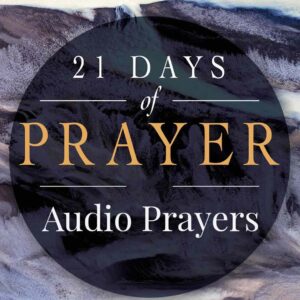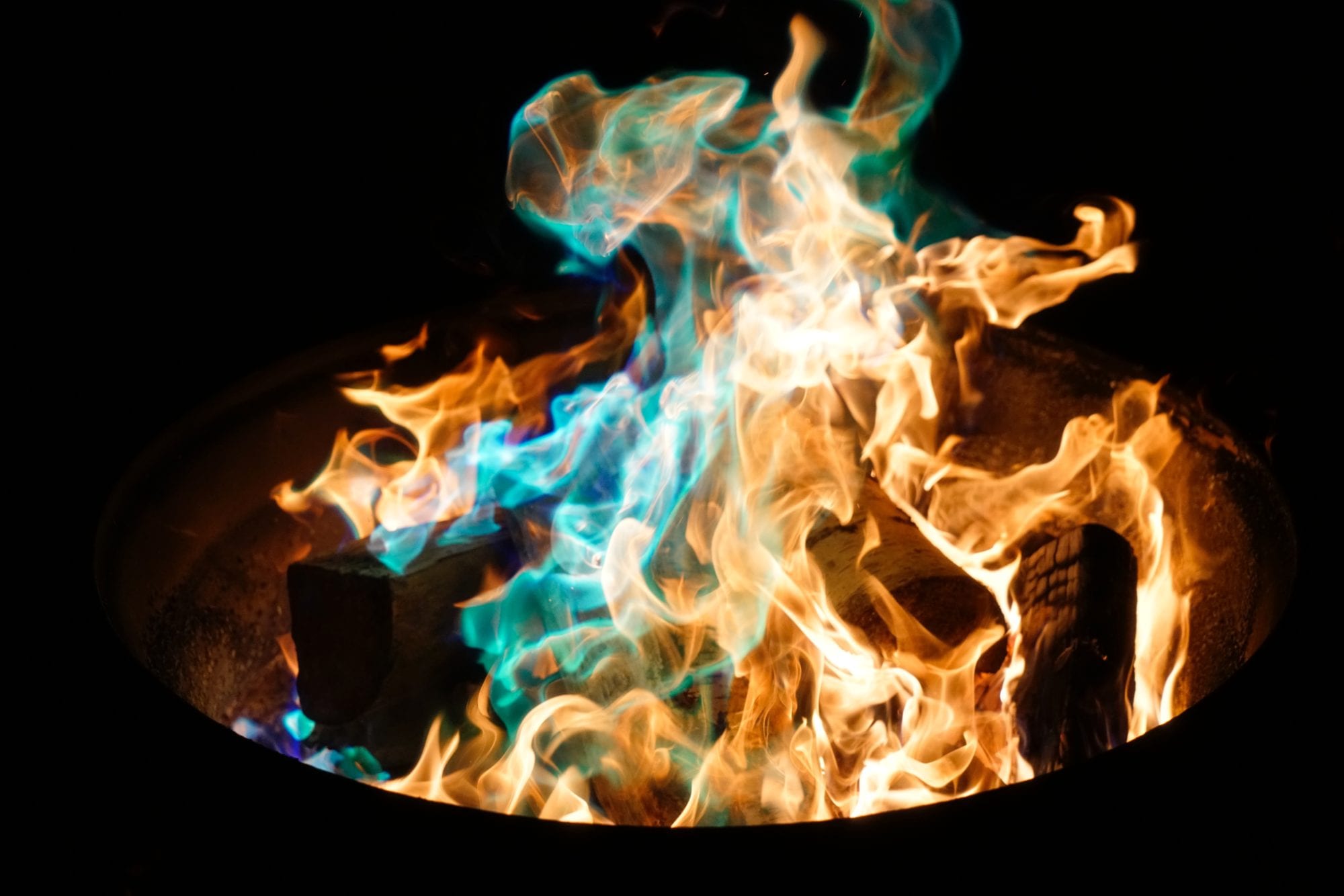Keeping Your Fire and Passion Hot in Ministry (Part 2)
In a previous article I wrote about the skill of keeping your inner fire and passion hot; how to manage the natural drain of emotional energy that can be very rapidly used up in ministry. If we in ministry don’t know how to refill our gas tank the result is burnout, weariness, depression, and quitting. The practice of staying hot reminds me of an old John Wayne western where the scene focuses on an old steam locomotive. The locomotive was driven by the steam that was created by the fire in the fire box and was fed by wood or coal. In the scene there was a guy or two constantly shoveling in coal or throwing wood into the fire box. They just kept at it. If they didn’t, all forward motion stopped. That locomotive is me and you. If we aren’t constantly throwing wood into the fire, all forward motion stops.
Over nearly 40 years of ministry I have discovered seven personal disciplines that work very well for me in keeping my fire and passion hot. I can truthfully say that my emotional energy, passion and vision for the future are hotter now than they have ever been. I am 65 years old, but the desire of my heart which I plead with God about every day, is that the next 10 years of my ministry will produce more fruit than all the previous 40 years put together. I don’t want to slow down. I just now have figured out what I am doing.
In the previous article I wrote about the first three disciplines that I religiously practice. The first one is to faithfully practice the basic disciplines of the Christian life; especially important is reading my Bible every day and spending time with God alone in prayer every day. I typically spend an hour a day reading the Bible and an hour in prayer. It may seem like a lot of time but the results and blessings from God are more than worth every minute.
The second discipline was to write motivating and challenging goals for every area of life and to read those goals every day. This one is a very powerful fire starter for me. If I am feeling sort of lukewarm about ministry or the future I just take a few minutes and read through my goals. The short amount of time that it takes to read 65 goals will really jazz me up.
The third discipline is to strenuously exercise at least five days a week (and six is even better). I exercise at least an hour a day and most days it is 90 minutes. With my Parkinson ’s disease, exercise is very important. The more I exercise the better I feel physically and the better I get around. I have also found that the more I exercise the brighter my outlook is on the future, the happier I feel, the stronger my inner desire is to do something great, and the more willing I am to take a risk to accomplish my big dreams.
4. I regularly and systematically get rest. This discipline is the one that took me the longest to discover and understand. For most of my life I considered rest to be a lazy man’s activity. I grew up on a dairy farm where we had to put in long hours to stay afloat financially. We got up at 4:30 am every morning to get the cows milked before going to school and had lots of chores each afternoon after getting home from school. Summer time included the very hard work of getting in all the hay for 100 cows as well as the normal dairy chores each day. My dad was a model and a teacher of the value of hard, disciplined work. I borrowed money and started my own dairy when I was 22 and my Dad said that if I wanted to succeed where most failed I would need to work 12 hours every day, seven days a week, 365 days a year for at least seven years, and then I might be able to afford to hire some help and take some days off.
I brought this work ethic with me into ministry. I remember on my 40th birthday after pastoring for 12 years, talking to an older pastor who I admired greatly and who was doing very well in ministry, and he said to me, “Pastoring is not like working on the farm; it takes a completely different kind of energy, and if you don’t learn how to rest you will not last much longer.” At the time I was in deep depression and thought, “I have to figure this one out.”
Now I faithfully take a full day off each week and often two days away from ministry enjoying fishing, hunting, working on my ‘49 Ford pickup, or spending time with my family. I remind myself often, “It isn’t a time issue, it is an energy issue.” I also take systematic breaks all through the day, sometimes five minutes and sometimes an hour or two. I go for a short walk, take a nap, go to the gym, and sometimes drive home and spend 20 minutes trapping gophers in my yard. These breaks throughout the day are super effective in keeping me focused and passionate about the ministry. I spent a lot of years just going through the motions because most of the time I was so weary and tired.
5. I practice prolonged solitude away from others. I discovered this just a few years ago, but it is probably the most effective thing at reigniting and maintaining my passion. I am such an introvert by nature that I get emotionally tired just being around people all the time. Obviously for me that is an occupational hazard because ministry requires being around people. Getting away from ministry duties and from people for a longer period of time allows me to fully recover and to get my emotional gas tank filled clear to the top.
Five years ago I went on a one month trip on my motorcycle by myself. I worked out a route where I would ride through every one of the lower 48 States. I camped each night and carried everything for the trip with me on the motorcycle. I rode 12,000 miles and saw lots of country. I had time each night in camp to read and write and came home with 33 sermons outlined which turned out to be some of the best sermons I have ever preached. Everybody in the church saw the energy lift in me when I got back, and I have had no problem continuing that practice every summer since then.
This year I am taking two months off during the summer and I am going to ride my bicycle across the country to the Atlantic Ocean. It will be 4000 miles and I will peddle an average of 66 miles each day. I will have all my camping gear with me on the bike. I am planning on preaching through the Gospel of John this next year and hope to have most of the sermons outlined on this trip. I will use up tons of physical energy and hopefully lose a bunch of weight but I will gain an incredible amount of emotional energy which will serve me well this next year.
6. I have a hobby. I find it beneficial to give my attention to a hobby that I enjoy so that I am not always thinking about sermons, Elders’ meetings, cranky people or deadlines. I have developed the hobby of restoring old cars, or in my case pickup trucks. I have a 1949 Ford pickup that I bought from a neighbor because that is what we had on the farm when I was growing up and I thought it would be cool to have one again. It was a total rust bucket. I joined an email club/forum of guys who were all restoring an old Ford that had a Flathead V-8 engine in it and were manufactured between 1932 and 1953. I did a total frame-up restoration on it so I had to learn how to rebuild the engine, rewire the entire pickup, rebuild the brakes, do the body work, paint it and on the list goes. I was a total novice when I started but I have very much enjoyed the experience, and the way it captures every ounce of my attention.
7. I enjoy my family. The last thing in this list that fills me up with energy which is super important, even though it is mentioned last, is to spend time with my family away from church activities. This needs little explanation because we all know that positive emotional energy can result from being a part of simple family activities. I have eight children, six son-in-laws, a daughter-in-law and 19 grandchildren. They all have lives of their own, but I spend time with them every chance I get because I love them, and also because it keeps me very happy in my heart.



